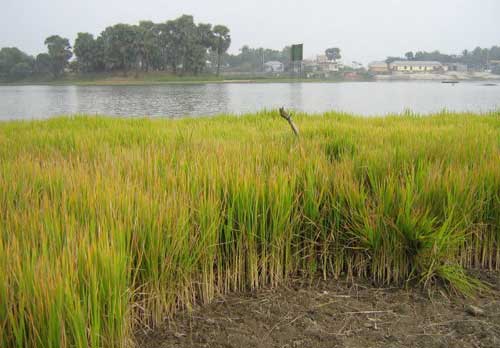SWEDISH SOUTH ASIAN STUDIES NETWORK
Department of Immunology, Wenner-Gren Institute (WGI), Stockholm University
Postal address: Immunology,
The Wenner-Gren Institute,
Stockholm University, SE-106 91 Stockholm,
Sweden
Visiting address: The Arrhenius Laboratories, Svante Arrhenius väg 22, 5th floor (entrance 20B)
Web page: http://www.wgi.su.se/
Contact person: Professor Carmen Fernández, phone: +46 (0)8 16 45 99
At the Wenner-Gren Institute research is carried out in four disciplines: Cell Biology, Developmental Biology, Immunology and Physiology.
Within the Dept. of Immunology, research grops are led by the following researchers:
Klavs Berzins (on Malaria, Host-parasite interactions, and Parasite neutralisation); Carmen Fernández; Eva Sverremark Ekström; and Marita Troye-Blomberg (on Plasmodium falciparum malaria, Immune regulation, and Human and parasite genetics).
South Asia related research
In December 2009, Prof. Carmen Fernández was awarded SEK 600 000 as a three-year grant (2010-12) from the Swedish Research Links programme (funded by Sida and the Swedish Research Council)
for a Bangladesh related project entitled ”Development of rice plants for the delivery of oral vaccines”. See the full list of South Asia related projects given Swedish Research Links grants 2009. ![]()
The research project will be carried out in collaboration with two reputed research centers in Bangladesh. The partners on the Bangladeshi side are Dr. Firdausi
Qadri, Senior Scientist at the
Laboratory Sciences Division/Immunology, International Centre for Diarrhoeal Disease Research, Bangladesh (ICDDR,B) in Dhaka; and Prof. Zeba Islam Seraj at the Plant Biotechnology Lab, Dept. of Biochemistry and Molecular Biology,
University of Dhaka.
One Bangladeshi PhD candidate currently at the department in Stockholm, Jubayer Rahman, will perform a part of the study in Sweden and thereafter in Bangladesh. During this three years period, all partners will be in continuous contact and conferences and workshops (at least once a year) will be organized in one of the countries with the participation of senior scientists and students as expected.
 Project abstract: In this study the researchers will use the adjuvant properties of cholera toxin B subunit in immunization with tandem recombinant proteins expressed in rice in order to improve current vaccination strategies against V. cholerae or mycobacterial infection. The novelty of this approach is based on the following aspects: a) the delivery of protective antigens in transgenic rice; b) the use of oral vaccination to protect the intestinal mucosa; c) to extend the concept of oral immunization and enteric protection to oral immunization and lung protection.
Project abstract: In this study the researchers will use the adjuvant properties of cholera toxin B subunit in immunization with tandem recombinant proteins expressed in rice in order to improve current vaccination strategies against V. cholerae or mycobacterial infection. The novelty of this approach is based on the following aspects: a) the delivery of protective antigens in transgenic rice; b) the use of oral vaccination to protect the intestinal mucosa; c) to extend the concept of oral immunization and enteric protection to oral immunization and lung protection.
The researchers
will develop optimal constructs for recombinant vaccine candidates to achieve high expression and accumulation of inserted vaccine antigen in rice seeds. The immunogenic and protective properties of rice-based cholera and tuberculosis (TB) vaccines will be tested in mouse models. A 3-way approach involving one Swedish and a two Bangladeshi reputed research centres are designed to complement expertise and strengthen it. While the Plant Biotechnology Lab at University of Dhaka will do rice transformation, the researchers at ICDDR,B will test the cholera vaccine, and the Swedish partner will test the TB vaccine.
SASNET - Swedish South Asian Studies Network/Lund
University
Address: Scheelevägen 15 D, SE-223 70 Lund, Sweden
Phone: +46 46 222 73 40
Webmaster: Lars Eklund
Last updated
2010-03-01
